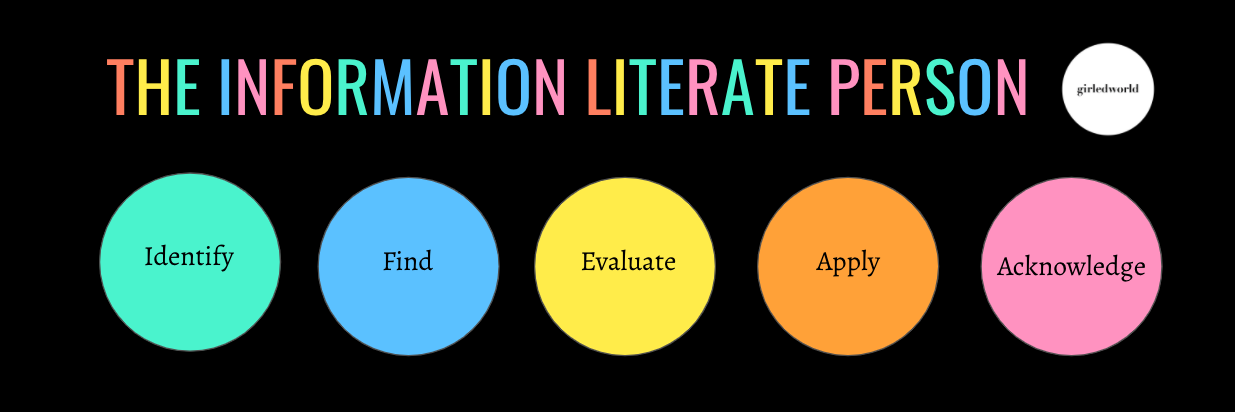If you’ve stopped recently and dragged your head up from whichever digital device you’ve been scrolling through, you may have noticed that the world has changed.
Yep. We’re now living in the ‘Knowledge Age’ - an age of information, big data and ideas, and a time during which you’ll need to develop skills in information literacy to help you navigate the huge amounts of content you interact with both on and offline every day!
In fact, you’re probably already aware there’s never been as much content and information available to us than there is right now - everyday, at our fingertips.
For instance, do a quick search using the keywords “Information Literacy” on Google and you’ll receive a list of content from 177,000,000 sources in half a second!
But what exactly is Information literacy? And how do you develop it as a skill?
Information literacy enables us to identify, locate, select, analyse, evaluate and effectively use information for a task or particular priority.
For example, if you wanted to know how to fix a problem on your phone by searching online, you would use information literacy skills to choose which keywords to search, read through the search results information to analyse and decide if it’s relevant - and then select the information that can help you fix your phone!
Why is information literacy important in the future of work?
Information literacy is really important in the workplace because so many of today’s jobs require you to have skills in finding, analysing and using information effectively.
In fact, people working in jobs in industries including Law, Science, Engineering, Information Technology and Media all use information literacy skills on a daily basis. For example:
A research scientist uses information literacy skills to read and analyse previous studies undertaken in their field of inquiry so they can establish a base level of knowledge, and also identify gaps in research or discovery that might need to be investigated.
A police officer or detective uses information literacy skills to gather evidence about a criminal case, interview witnesses to uncover facts about the case, and also to navigate complex legal processes and documentation in order to solve the case.
A civil engineer uses information literacy skills to gather information so they can make informed design decisions. For example, when designing a new bridge they need to use a range of sources to research industry standards and guidelines so they can make sure the bridge is strong enough to safely bear the weight of trucks, multiple cars and other transport travelling across it.
A university student uses information literacy skills every day in their learning. For example, a student studying agriculture who is writing a research assignment will need to undertake lots of online research to find, read and evaluate data and information from different sources so they can select what is most useful to write their assignment.
These are only just a few examples - but in reality, in the information age - everyone in the workforce will need to find and use information no matter what job you choose! Whether you’re a teacher looking for interesting content to use in your classroom, a journalist finding credible sources for an article, a student researching information for a project or a small business owner trying to find a quick answer to a business problem - all of these careers (and more!) need people with information literacy skills!
So no matter which path you choose, being able to identify, locate, analyse, evaluate and effectively use information for the task at hand will be a skill you use a lot of in your working life!
And a super quick recap on the information in this blog post:
Now that you’ve read this and had a chance to think about this information!, you’ll be able to:
Describe what information literacy is
Explain why information literacy is important in your future career
Share examples of how information literacy is used in different jobs



